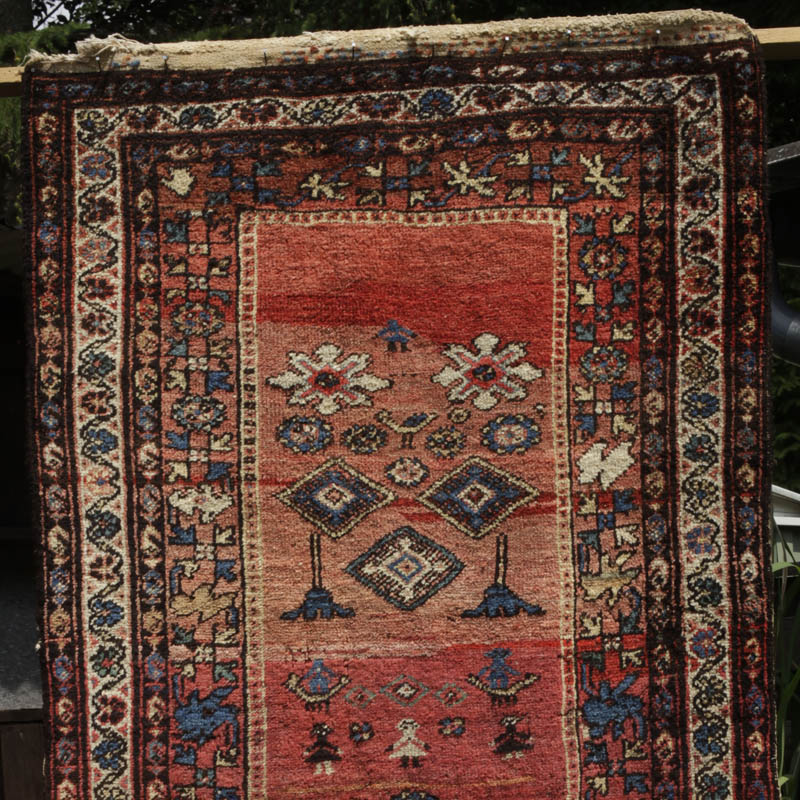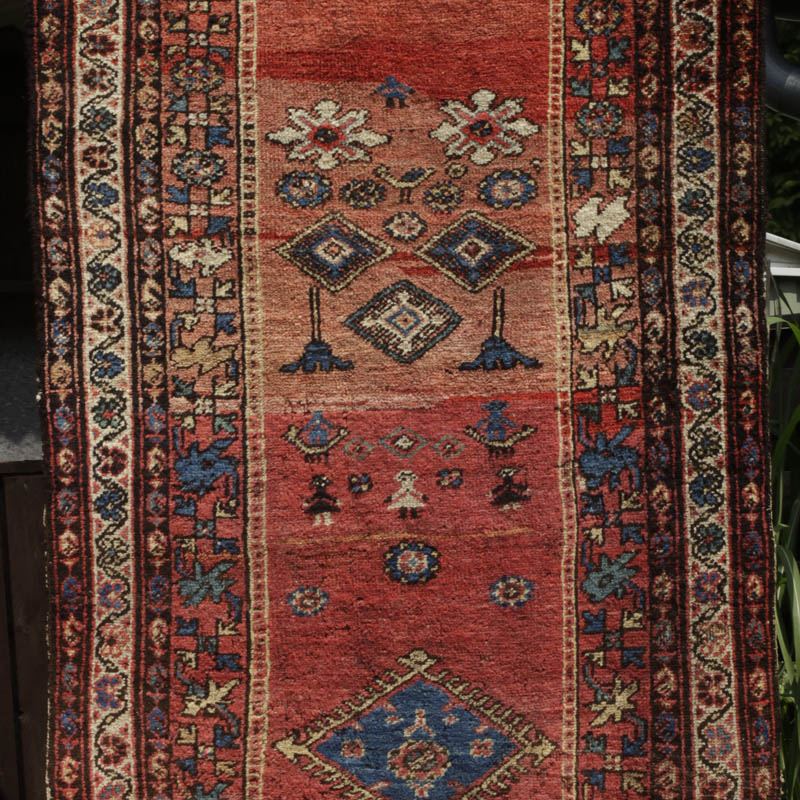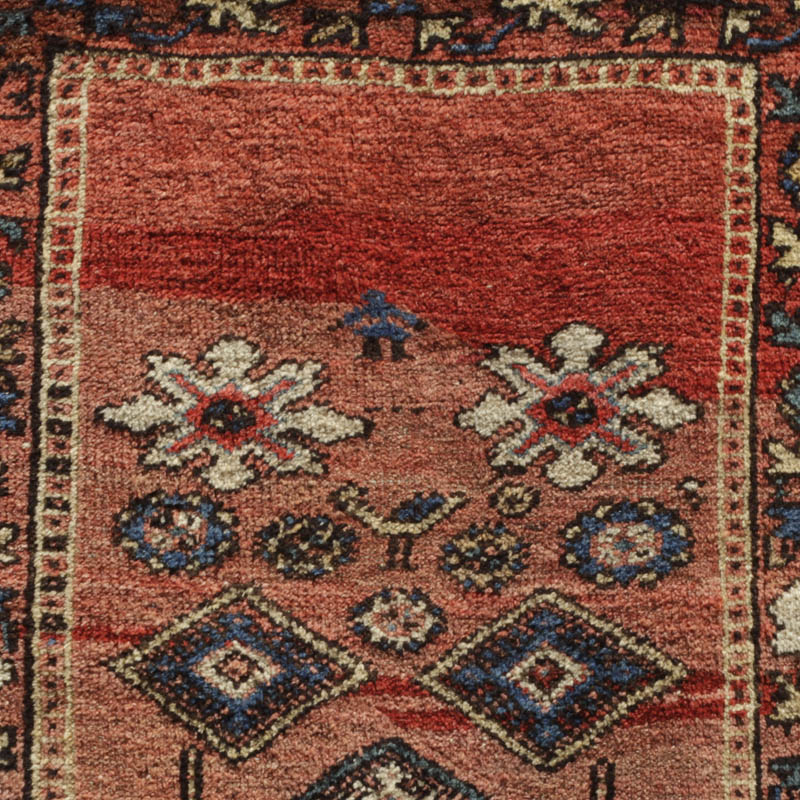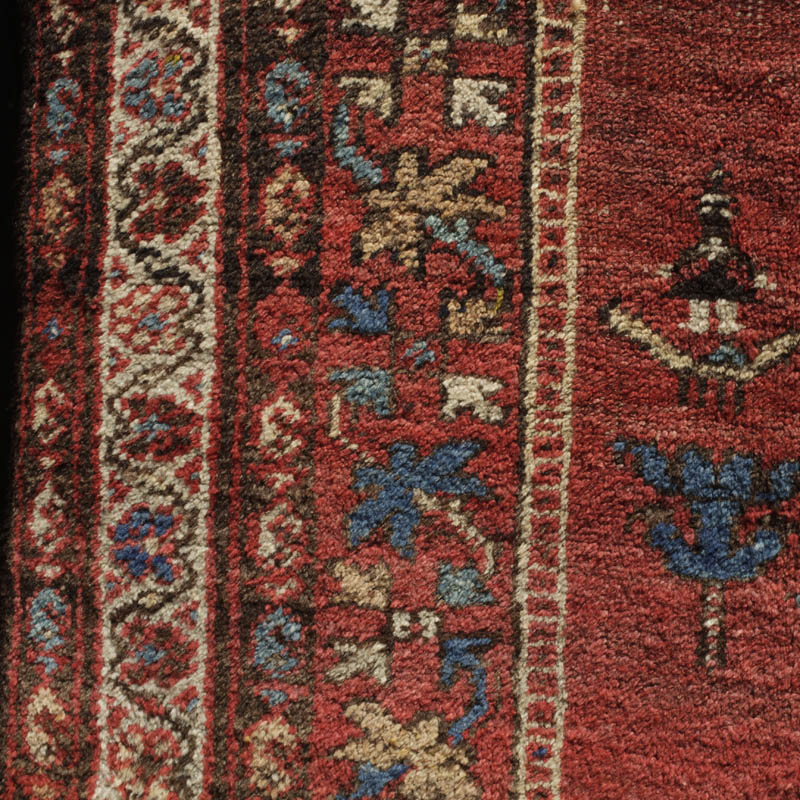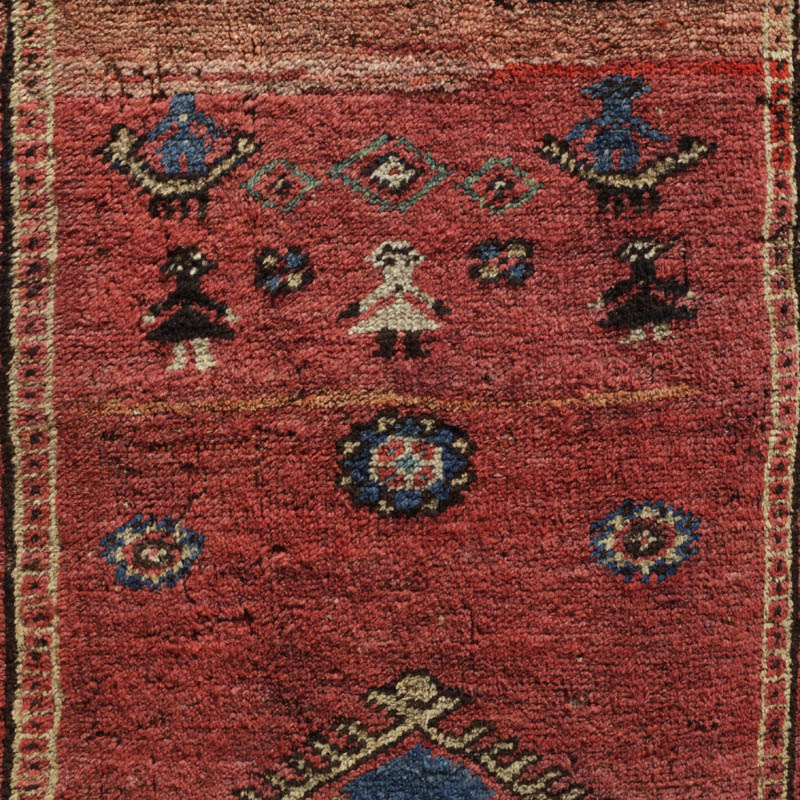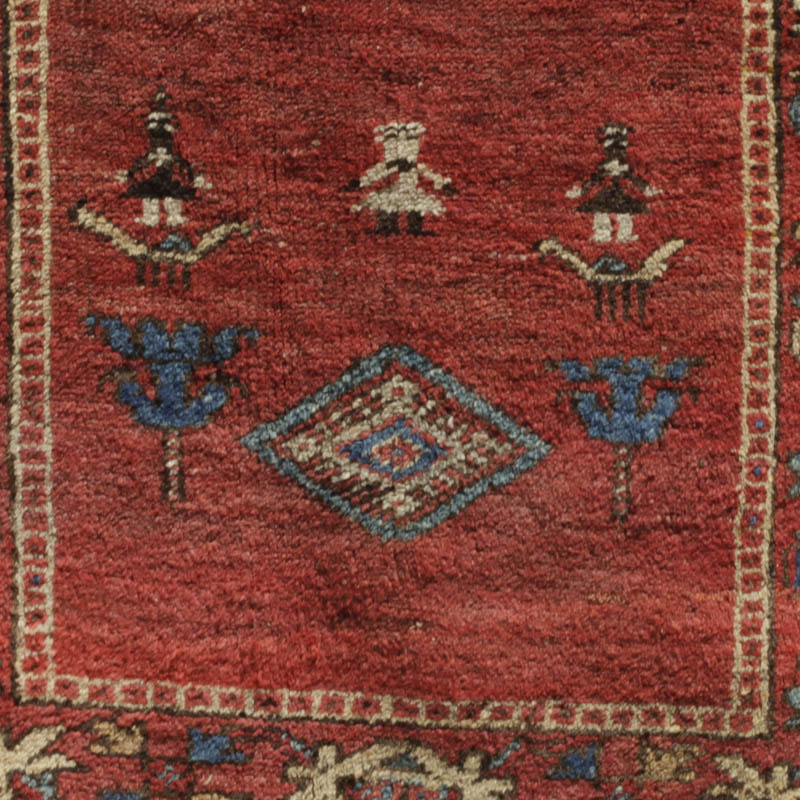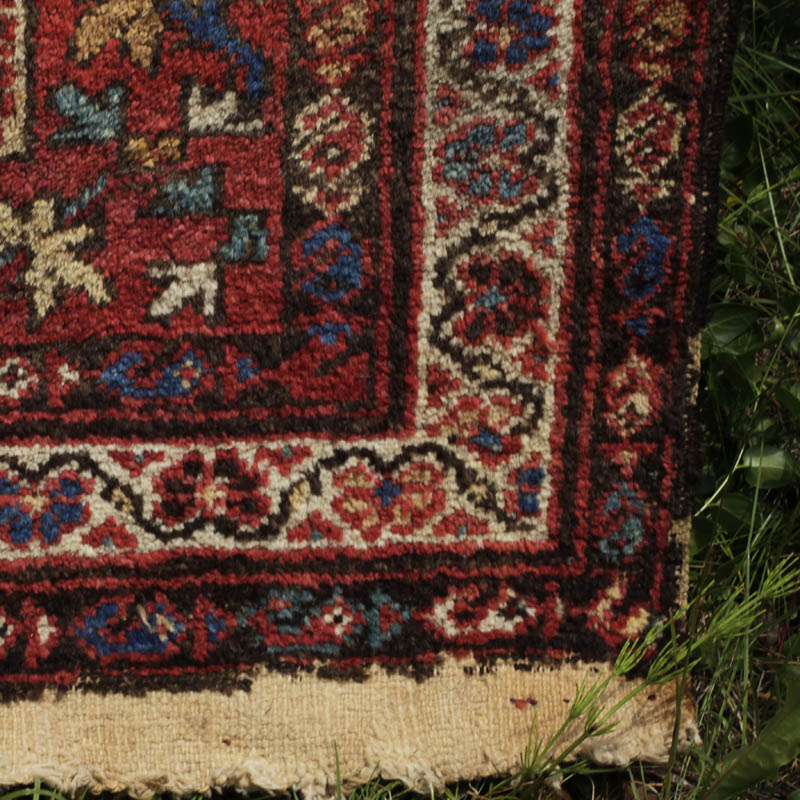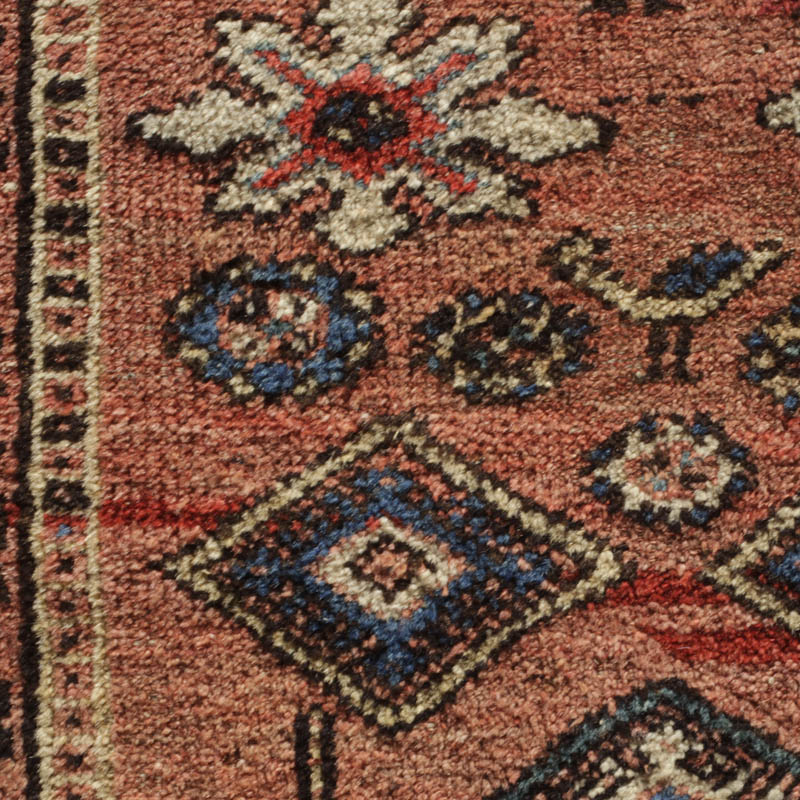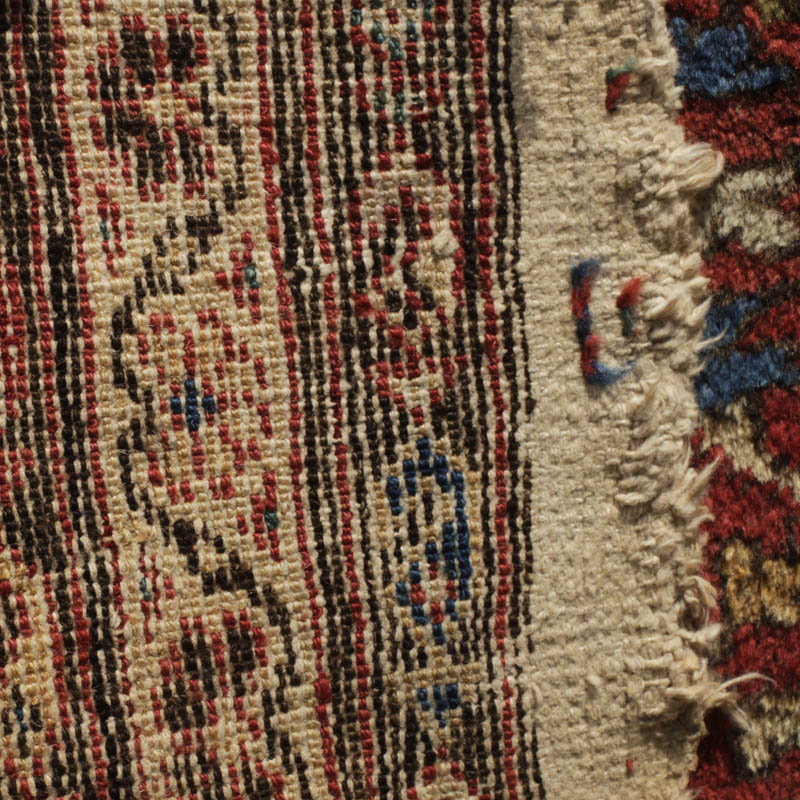Click on image to view in larger size.
See image in extra large size (opens jpg in same window) (1.8 MB).
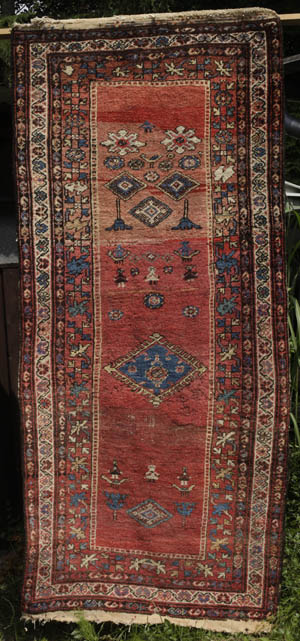
North-West Persian, Kurdish. Difficult to pin down. A rug with one-of-a-kind whimsical design. The narrow width and the slight banana shape point to a tent production. The cotton foundation and the occurence of one hot red which is probably synthetic suggest a production date between 1900–1940.
The red ground has a lot of abrash, from madder rose shade in the upper part to a nicely saturated red. On the right side, there is one narrow streak of a hot red below the upside-down blue flowers in profile, difficult to discern on the photos (at least on my monitor).
Designwise, there are different regions, broadly symmetrical along the vertical axis. I will put the design elements into a list better to display the whimsicality of it all:
Three outer minor borders (small botehs - Kurdish blossom meander - small botehs) frame the main border which seems influenced by a Caucasian border design found, for example, on Shirvan and Kuba rugs (the 'crab' border). Not executed to perfection, especially in the upper half where the 'crab' motive (probably of floral origin) gets strangely bloated.
The rug measures 252 x 112 cm or 8ft.3in. x 3ft.8in. (including skirts). Flat and very coarse construction (no warp depression, symmetric knots), white cotton warps and wefts. The knot count is h.19/10cm x v.26/10cm, which equals 494 knots/dm2 (translated to knots per square inch, this is roughly h.5 x v.8, ie., a rather low knot count of ca. 40 kpsi). The selvedge consists of two warps wrapped in dark brown wool. Ends have flatwoven skirts with remnants of a double decoration line in alternating colours (blue/red). At the top end, warps are worked into bands of oblique wrapping. Flexible and sturdy handle.
LOTS of madder red in various shades; medium indigo blue, black; white; a nice teal green; some straw yellow-beige, and light grey-green. All dyes are organic except for a bit of hot red, as already mentioned, which also used inside the large eight-petalled blossoms in the top area of the field.
Structurally sound and complete. Mostly low but good pile, with an area of wear with some foundation showing in the lower field. Various areas of old moth bites, most visible below the central medallion. No repairs. Top end bands of oblique wrapping slightly unravelling. Selvesge wrappping partly gone, can easily be re-wrapped. Not washed, but does not see particlarly dirty. No holes or tears, no glue, no odour.
All photos are taken outdoors in lateral sunlight.
